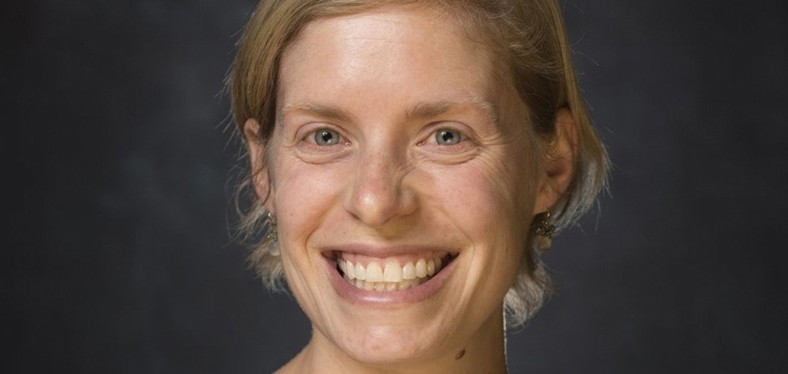By Sarah Tuff Dunn
An environmental studies major at UVM, Kate Manciocchi shifted gears after working for the Fund for Public Interest, realizing that she wanted to be more hands-on in the hiring, training, and interviewing process of an office.
Today, Manciocchi has her hands full, not only as the staffing manager for the San Francisco Museum of Art, but as the mom of a 2-year-old; she’s kept her interest in the environment alive through volunteering. “A lot of people will do a number of career changes,” she says, “but can still maintain the passion of their college major through donating money or time—it just may not be their full-time career.”
We asked Manciocchi, ’02, to paint us a picture of her people-person perspective.
What was it about human resources that sparked your career?
I’m a very outgoing person—willing to talk to anyone, start up a conversation: “Who do you know? I know that person! What does your network look like?” I love going to networking events. I love going to job fairs. I get really excited by recruiting and helping people find jobs. I make it a point in my very busy work schedule almost every week to have an informational interview with someone who’s looking to pursue a career. I do this for alumni, and I currently have a UVM student shadowing me in beginning of January. I thrive off of it—I’m fascinated by people and their career paths and how I can get them there.
How has the role of a human resources staffer changed over time?
HR is culture, it’s performance management, it’s profession planning. It’s making sure people are doing the best they can in their job and making sure you have a plan for people—a clear path for how they are affiliated with the organization. The biggest investment that any organization has is in their salary and their benefits, so companies need to understand the value of staffing and recruiting well.
What’s the worst interview you’ve had with a potential candidate?
First impressions are still really important. I’ve had people show up in inappropriate attire for an interview, which really stands out, and also people who walk into an interview and can’t tell me why they want to work for our organization. If you can’t tell me why you want to work at SFMOMA without giving me a generic answer, and take the time to be prepared to answer that question, that really stands out. You need to come mentally prepared—bring your A-game. Be ready to answer a question with a situational or exemplary backup: “This is how I did that in a previous job.”
What should a candidate never, ever do in an interview?
Lie. Interviewing is a bit like acting—you want to put your best foot forward, and show your interest in the job and show that you’re knowledgeable, but lying’s a big no-no.
OK, so what makes a good interview?
I want people to walk in the door and tell me they’re the best candidate for X, Y, and Z. I want people to know a little bit more about each of the people they’re meeting with and make personal connections. I want candidates to have done their work on LinkedIn regarding the people they’re meeting with. Also, smile and be really excited about being there!
How important are formal thank-you notes?
I’m a sucker for handwritten notes. If I have two or three top candidates for a job, and if one of them takes the time for a handwritten note—I know it’s so old school and clichéd—I’m very impressed. That still speaks volumes today.





